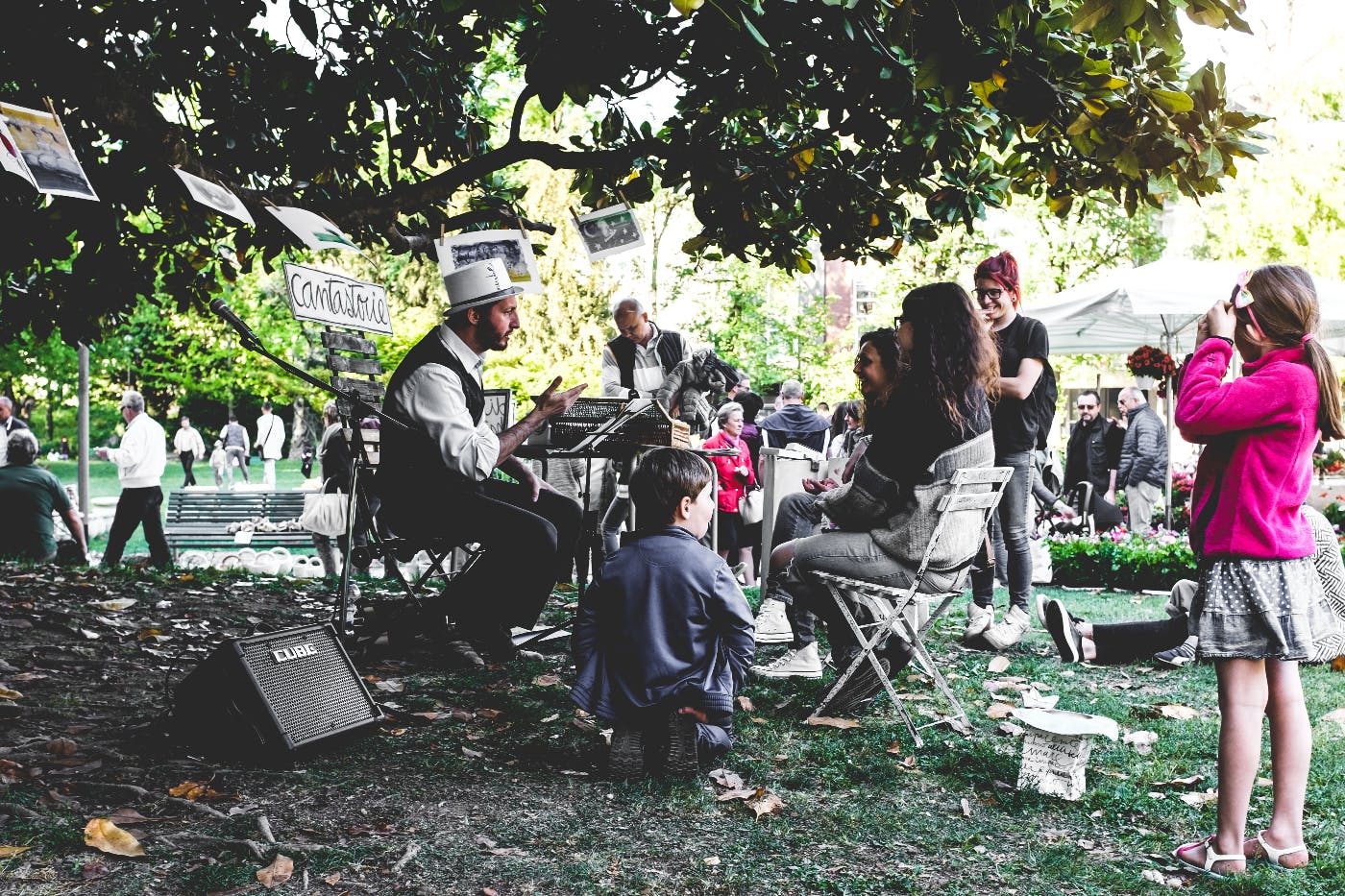
Each profession has a language; within that language are sub-languages, slang for processes, systems, parts, and even customers. We are surrounded by language, some of it silent, like sign language.
I have just returned from my father's funeral. He was 86 and went in his sleep, which seemed to be the highlight of the news we spoke of as we gathered. He ate lunch, laid down for a nap, and just decided that he didn’t want to wake up, and that was the end of his life. He now joins my mother in eternity; make of that what you will.
I am sad about my father's passing, as I was when my mom departed. But, as I sat in the plane, crossing the nation to return to my humble home, I pondered loss. I thought about not just the loss of my parents but the loss of language.
Each profession has a language; within that language are sub-languages, slang for processes, systems, parts, and even customers. We are surrounded by language, some of it silent, like sign language. In all, there are 7000 languages spoken worldwide. But that doesn't count the sub-languages of business or occupation, family and friends, even down to which street you live on and what part of the town or city where you grew up, there is a specific language to that place.
Language Lost
I have lost my parents. Let me reword that because saying I lost my parents is polite, but it also seems irresponsible, like my parents are now drifting through the food court, and it was my day to watch them, but I’ve somehow lost them. I did not lose or misplace my parents, they died, and that’s that. So, they are gone, and with them goes a language.
I had a language with my father. Shorthand for moments we experienced together. Ways to describe a person or a situation that was ours, our own lexicon of words that meant things to us and no one else.
This isn't unique to me; we all do it. One of the most complex parts of ending a relationship is that the great language you’ve developed with your partner is gone. Maybe scrawled on post-it notes, only to be discovered in the pocket of your jeans when you wash them, and you pull change, a gum wrapper, and a note from “them” from your pocket.
Scientists will not study this language; there is no Rosetta stone for the language I spoke with my father or mother. We had it, we understood it, and now, with them gone, there is no one to speak it to. The language of my parents and I will not be on the curriculum of your local college. It was ours, and now it’s gone.
What is Language
According to the Encyclopedia Britannica, “language is “a system of conventional spoken, manual (signed), or written symbols by means of which human beings, as members of a social group and participants in its culture, express themselves.”
According to EnglishFinders, there are ten main characteristics of language,
- Language is systemic
- Language is Symbolic
- Language is Systematic
- Language is Social
- Language Is Non-Instinctive, Conventional
- Language is Cultural
- Language Is Non-Instinctive, Conventional
- Language Is Productive And Creative
- Language Is Unique, Complex, And Modifiable
- Language Is Human And Structurally Complex
Language is Personal

I will add to this that language is personal, and language unites us. I’m not talking about a national language or that we are part of the United States because we speak the same language. I believe that not knowing a language can unite us as well.
If you’ve ever traveled and found yourself in a foreign country where you don’t speak the language, some people are willing to help. The experience of trying to communicate for food, drink, shelter, or the bathroom non-verbally is a very unifying experience. The kindness of a stranger desperately trying to help, combined with the need of another who needs help, is a unifying moment.
But, as I stated earlier, we have languages beyond the 7000 recorded ones. I had a language with my father, my mother, and my older brother. I have a language with my best friend that no one knows or cares about, but when one of us passes, that language will pass as well.
The language we have between us unites us and underscores the uniqueness of the relationship.
Listen & Learn the Language
A common language makes things easier when it comes to communication. Now, I am not talking about knowing French or Italian; I’m talking about listening to clients and using their own language to speak to them, unite with them and engender more trust between you.
When you begin to interact with a new client, listen more than you speak and note how they express themselves, the phrases they use, and how they talk to each other in a conference. Listen, note it, and understand it. But, always respect it.
If you approach every business as the same, you risk alienating that client. It’s easy to treat each client as an individual if you listen to the language they use. But this requires some work and patience. You have to be a bit of a detective. It also requires that you throw away the idea that this is how we conduct a first meeting.
If you go into the situation with the notion that this is the way we always do it, then you’ll get the this is the way we always do it results. But, if you go into a first meeting with a potential or new client as you’ve never done this, are wide open to whatever happens, and you’re genuinely listening, you will have an opportunity for deeper understanding which can lead to stronger relationships.
Listening carefully lets you pick up regionalisms, like pop or tonic, instead of soda. You can hear indications of their culture and beliefs. If during a conversation, someone says something akin to, “and we came out of that well, thank God,” if you pay attention, you can tell if they are just saying this or if they believe the power of God helped them. This doesn’t mean you have to put on a mantle of piety; it means that when you speak to them, you know they have strong beliefs, so you know what language to use and what to stay away from.
Listening, without an agenda, is always a good first step when meeting new or potential clients. The more you listen, the quicker you can adapt to their language and the easier and more productive your relationship will be. It will be subtle, but a client will recognize when you’re using terms that come from their personal lexicon, and they will trust you more, feel closer to you and open up. Once they open up, the real work can be done.
Tell Stories in Their Language

We’ve discussed before how vital storytelling skills are to your business and brand. Imagine how much more effective you will be if you tell those stories in your clients' language
Again, it requires sharp listening and quick digestion of their language. Once you’ve got the basics, you can start using phrases and words that they have used to tell their story. Using their language to tell their story is an excellent way to keep them unique even in crowded markets.
Using their language to tell their story also naturally leads to that elusive authenticity. You don’t have to put on a personality; if you’re using their language, it will be there and be recognizable.
Never Underestimate the Value of a New Language
No matter who your client is, learning their language is essential. You have no idea when you might meet clients of the same ilk down the line, and knowing their language can be the difference between landing them or not.
Listen and pick up ideas, thoughts, and expressions you can employ later. Everyone on the team, especially the storytellers, is responsible for grabbing, understanding, and holding on to the languages you hear when talking to clients. How much easier is it to tell a brand’s story when you can speak fluently in that brand’s language?
Listening and understanding also teach you to put aside judgment. Your client may be rural and make you think they speak like a “hick,” but they know the language of their customers, and you should as well if you want them to be successful. Listening and understanding their language's who, what, and why helps remove judgment.
Language can unite and divide; the choice is yours when it comes to working with a client. If you take the time and listen, you can learn so much about your client, and by using their language to talk to them, write for them, and market for them, you can find harmony and authenticity.

